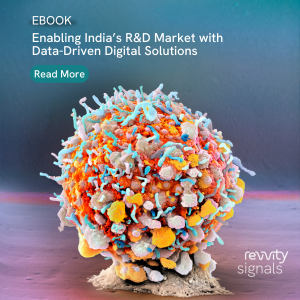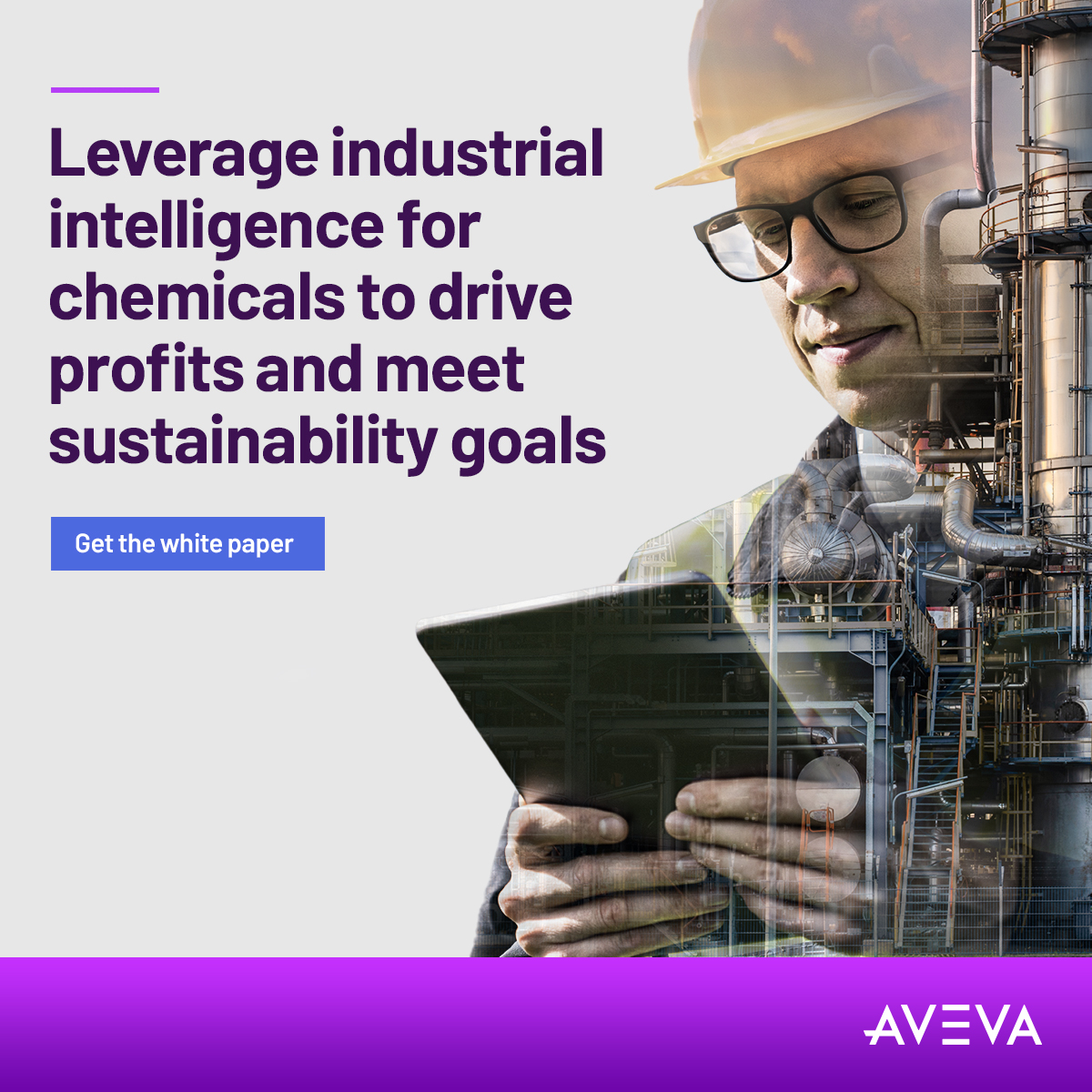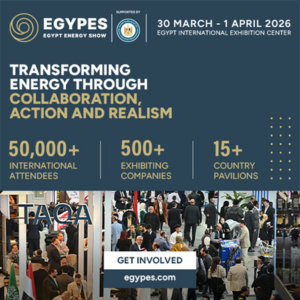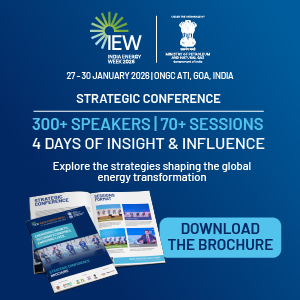Gallery
May 27, 2022
Intensifying R&D to create new products, applications, and process improvements: Dr Richard Lobo, Head – Innovation and CQH, Tata Chemicals
India is truly a rising star as we have done about US $32 billion in turnover and specialty chemicals constitute about 1/5th of the chemical sector and are valued at close to US $160 billion as of FY18.
2022 global trends in specialty chemicals and basic chemistry and its impact on India?
Today, specialty chemicals is US $800 billion and is growing with a CAGR of 5.7 percent over the last 5 years. This is expected to grow and the momentum will continue till it becomes a US $1 trillion industry by 2025. Specialty chemicals industry is becoming an integral part of the larger global chemical sector. The chemical sector is presently US $4 trillion and it was growing at a CAGR of 4 percent from 2004 to 2018 and will go from strength to strength in future. The global chemical sector is dominated by China with a market share of about 35 percent and is followed by Europe and the United States with 20 percent and 15 percent respectively. So, India has a long way to go.
Currently, we have a market share of about 3 percent but we are an emerging player in global chemical sector. It is very heartening to see chemical sector leaders in India looking at specialty chemicals as a major vehicle for growth, particularly as we are planning to ramp up our product and capacity.
India is truly a rising star as we have done about US $32 billion in turnover and specialty chemicals constitute about 1/5th of the chemical sector and are valued at close to US $160 billion as of FY18. So, there is great scope for growth and great room for exponentially pushing the barriers. The industry is moving sharply from single digit to double digit growth in years to come. We are very optimistic about India, as we believe the inherent knowledge base, exposure in terms of low cost manufacturing base, and depth in science will be of great help. We also understand technology and R&D really well. The ability for us to use Indian frugal engineering, strong understanding of consumer connect, and back it up with the very large pool of labour which will bode well for India.
How is R&D into basic chemistry and specialty chemistry enabling Tata Chemicals to consistently set industry benchmarks?
Tata Chemicals has been a science based company ever since its incorporation in 1939. So it has a 80 plus year long history. There is a mission of the company which says serving society through science and it guides us on our journey all through. At the very core remains our value system which keeps us grounded in areas we work on.
Currently, we are working on a few areas which include a prebiotic fibre to promote gut health. The other aspect is highly-dispersible silica through a green patented technology which will help improve the performance of tyres, help reduce the consumption of fuels and help build sustainability. We have been recognized by our peers along the way. We have been recipients of CII's India's top innovative company award consecutively three times in a row. We have recently won the quality innovation award at an international level.
As the head of innovation at Tata Chemicals, my team is focused on next generation science differentiated innovation, collaborating with the world's best academia or R&D labs. In this process, we build businesses which have a unique brand and value proposition.
Key R&D initiatives of Tata Chemicals and patents granted in FY 2021-22?
The company has a cumulative of 172 patents and we have got 110 applications with various patent offices. Eight patents have been granted in this financial year and we are focused on generating our intellectual capital besides patents also to international peer reviewed journals and also participation in international conferences as well as collaborating with the best in class.
From an R&D perspective, we have been focused on developing some very significant competencies and this is centred around areas like performance, advanced materials, and sustainable green chemistries. We have worked on nanotechnology in the past and to push the barriers of nanotech into new territories. We are also focused on biotechnology, molecular breeding and there has been a strong push within our R&D centres where we use Machine Learning (ML) and data analytics so that we are able to look into the future very strongly as a leader in R&D. There are a number of products that are born in the R&D centre over the years, like high dispersible silica.
We had a nano zinc oxide product for replacing harmful UV blockers, so that it could be used in paints and cosmetics. During the pandemic, we quickly pivoted and made a nono-zinc coated textile because of its inherent anti-microbial properties. It was used in personal protective equipment, facemasks during COVID-19 pandemic in order to protect the frontline workers.
Initiatives taken by the company to enhance a portfolio of value-added, green, and patented products to develop a new grade of silica?
The tyre industry has a sharp focus on technology innovation so that the tyres are more safe and much more sustainable. Now considering that 20-40 percent of the fuel consumption in automobiles is because of the tyres itself, tyre manufacturing companies are now very strongly focusing on high performance tyres and environmentally sustainable solutions.
And highly dispersible silica is emerging as an excellent solution as tyre manufacturers are using it as a re-enforcement pillar. It offers higher reinforcement ability, improves fuel efficiency because it rolls down the resistance in tyres. On the other hand, if you look at traditional re-enforcement reagents like carbon black, they have got higher rolling efficiency, resulting in higher consumption of fuels. The highly dispersible silica is successfully reducing the use of carbon black in the tyre industry. India is one of the largest producers of tyres at the production of 192 million units which was produced in 2019 and it is expected in the next 5 years that this will even grow more. Hence, there is a demand for more and more green tires in future.
At Tata Chemicals, we looked at the space and said can we start from waste. We began with rice husk and extracted silica and used a green chemistry route to make it highly dispersible silica grade which can go to the tyres. The possibilities are now quite endless and the next generation R&D that we need to look will allow us to work with various applications to deliver a number of solutions. For example, the silica can reduce rolling resistance right up to 20 percent. This approximates to about 5-7 percent of fuel savings. Another aspect is when you put silica into it, it increases the lifespan of the tires.
Another example is we are all moving towards electric vehicles (EVs) and there is a demand for EVs for long range with lower emissions. So there is an even better need for tyres which will have a positive impact on rolling resistance so that the car will have absolutely no noise and will be more energy efficient and obviously, will have a lower impact on the environment. This is the area we are focusing on and with the collaborative approach along with automotive and tyre companies, there is a need for creating products that have long term sustainability.
What is the quality of silica that you get from rice husk?
Rice husk ash is collected and goes into boilers as agri-waste fuel but the ability to now look at the same rice husk ash and ability to extract silica has become important. And the grade is excellent as we are able to extract silica that is matching properties, characteristics, and particle size as of commercially available synthetic silica and delivers excellent performance. So while highly dispersible silica by itself is the sustainable product in tyres, the fact that you are able to extract it from the rice husk ash which is an agri-waste itself makes it even more sustainable. And I think it is part of an R&D intensity which I would say is able to stretch along this value chain to deliver the value.
How has the company ensured that its ESG initiatives protect the environment, human health, and safety it is also reflected in its product portfolio?
ESG at Tata Chemicals is factored around three areas. First, shared values which are focused on long-term inclusive growth and relationship with all stakeholders. Second, is minimizing our footprint and working closely with our manufacturing units, the decisions we make in technology and long term sustainable growth. Third, focused on new products and R&D.
For example, we have got a corporate structure on sustainability policy. We have signed up two science based target initiatives. We are among the very first companies in the chemistry sector to do that. We are committed to reducing our carbon footprint. We are aligned to the UN SDGs, we are focused on product stewardship.
From the factory point of view, all of this translates into key actions which are about not just looking at the environment but also ensuring that we promote a low carbon economy and reduce our environmental footprint. So our factories have got risk assessment and waste management mapping done. On our agri side we promote smart agriculture. There is a continuous improvement in the way we work on our waste material recycling of water and a number of carbon abatement initiatives for carbon deduction to achieve net zero at our various factories. We also focus sharply on energy management though audits, improvement in operational efficiencies, shift to renewable energies and so on.
From an R&D standpoint, the focus we have taken right from inception is low carbon use in energy. For example, we focus on the removal of hazardous material in the value chain or the fact that the raw material ingredient that we will focus on will come in from waste or can we focus on circular economy. For instance, in our factory in Mithapur, there is no waste that gets left out. All of it is converted into cement and an ability to look at the value chain, and that waste element and create a circular economy around that is what our R&D and science and technology teams focus on. Finally, we also focus on those technologies that will help save the environment such as highly dispersible silica and agroponics, the next generation of agriculture.
Projects spearheaded by Tata Chemicals R&D Centre, Mithapur to develop innovative solutions to resolve critical plant and production issues?
Our science and technology centre at Mithapur focuses on customer and critical plant issues. This unit has been working ever since the pioneering of iodization of the salt, the vacuum dried salt in India. The centre work on the use of waste effluent solids for the use of cement as a product. The centre constantly work on CO2 water based pulling because it is a water deficient region. Sea water for brine preparation so that we can use it for soda ash manufacturing. The efficient use of limestone, boiler, fly-ash, bromine dehydration, de-chlorination and a number of products. They are also working on the technology standpoint on highly efficient deep sea discharge or it could also be the plantation of mangroves. As a company we work with multiple institutions on natural carbon sinks to promote biodiversity. So, Mithapur unit focuses on delivering value.
How is the Tata Chemicals Innovation Centre, Pune making a difference to the food and fuel, energy and environment? Kindly share details on projects in the areas of food, nanotechnology, and biotechnology that are currently underway?
At the Tata Chemicals Innovation Centre, Pune, we continue to focus on developing cutting edge science. This is again linked to our mission to serve society with science. We have been looking at not just the current areas of performance materials, nutrition sciences, advanced materials, nanotechnology and biotechnology but we are also focused on seeding new capabilities of the future. We are looking at synthetic biology which is the simulation, gene synthesis, and over-expression of enzymes and bio-actives. We are focused on the agriculture sector on RJA technology which will help in crops. We are strengthening our gene editing technologies in our seeds division, improving our bio-active compounds in the medicinal plants under agroponics as I mentioned.
Looking at green chemistry solutions, pro-chemistries to name a few. In the future, we aim to intensify our R&D to create new products, applications and process improvements. We are looking at adopting Artificial Intelligence (AI) and Machine Learning (ML) which will help improve our R&D capabilities. We are already using Machine Learning for genomic prediction in Maize. Finally, we also aim to address issues that are critical to industry, not just the Tata Chemicals but the chemistry sector and chemical industry sector at large. We are focused on issues such as carbon dioxide emission, sustainability, hydrogen economy, circular economy, waste management and waste to wealth and waste to energy as well. These are the areas we are focusing on currently and in the future.
May 24, 2022
Green hydrogen can be an important lever to achieve net zero by 2070 says Nikhil Kalane, Management Consultant - Energy & Chemicals, PwC
Majority of hydrogen is going to Methanol and Ammonia so there companies are keen to invest.
May 24, 2022
Research is the foundation of building the future
We are very focused in renewable products and converting them to value added products.
May 24, 2022
FY 2022-23 is going to continue to be a tough year
Companies are looking at India not only to fill the gap in the supply chain but also prioritizing Indian suppliers.
May 24, 2022
We are progressively looking at reducing our carbon footprint says Rashesh Gogri, Vice Chairman & MD, Aarti Industries Ltd
We are looking at three buckets - Custom manufacturing, import substitutes and green & bio.
May 24, 2022
Freight rates to remain unstable for now: Dilip Shah, MD, Prakash Chemical
The current trends in the chemical industry is very volatile. There is a very good demand in the country. All the focus is shifted to India for many chemicals. Prices are too high and there are concerns with availability of raw materials. Freight rates have gone up due to congestion on Chinese ports.
May 24, 2022
We are moving towards green surfactant products manufacturing: Debashish Vanikar, Rossari Biotech
We see lot of demand emerging in India for Silicones.
May 24, 2022
Our capex target for FY 21-24 is Rs. 4,500-5,000 Cr : Rajendra V. Gogri, CMD, Aarti Industries Limited
Key milestones achieved by Aarti Industries in the chemicals and pharmaceuticals businesses during FY 2021-22?
AIL's (Aarti Industries Limited) journey was profound and exemplary in FY 2021-22. With our integrated value chain, diversified product mix, strong technical capabilities, and robust track record, the company emerged as a global partner of choice.
Some major milestones achieved by Aarti Industries during FY 2021-22 are:
- The company was conferred with the FICCI Company of the Era Award for its immense contribution to the chemical Industry in the past 25 years
- The company was conferred with a Gold Award in the 2021 EcoVadis CSR assessment, placing us among the top 5% of the companies assessed by EcoVadis. Our score improved from 60% in 2020 to 68% in 2021
- On the research and development front, we applied for 44 patents and were granted 11, out of which 8 were international patents
- The company was placed at 3rd position in the chemical sector (amongst 15 chemical companies) with an overall ESG score of 56. CRISIL evaluated independently Top 225 companies across 18 sectors based on their ESG assessment framework (as per information available in public domain) in FY21
- The company was awarded with the Responsible Care Logo post successful completion of RC Gap Assessment for self-imposed ethical commitment for better EHS&S performance and responsible management of chemicals throughout their lifecycle
- On the business front, the company successfully raised Rs. 1,200 crore additional share capital via QIP
- To meet growth aspirations, the company onboarded around 1,500 bright talents and created various growth avenues for internal talent, thereby accomplishing 18% internal growth transitions in FY22 from 12% in FY21
- The company also commissioned a speciality intermediate plant at Dahej for which a 20 year contract agreement was signed. The company also launched API intermediates block at pharmaceutical manufacturing unit in Vapi
- The company's CHRO was conferred as the HR Leader of the Year at the Economic Times Human Capital Awards 2021
The objective behind the company's move to demerge its pharma business to Aarti Pharmalabs. What's a long term strategy to strengthen the company's position in pharma?
The pharmaceutical division has been growing consistently over the past few years. The revenues for the pharmaceutical business have grown at a CAGR of 20% over a period of 5 years from Rs. 426 crore in FY17 to Rs. 872 crore in FY21. To create an overall value for our shareholders, and also to enable management of the company to focus and adopt the relevant strategies necessary for promoting growth and expansion, the demerger is being carried out. The demerger of pharma undertaking will facilitate a focused approach to the growth opportunities into respective segments, also enabling the segment to take strategic calls to capture these opportunities to grow.
Our long-term strategy is for enhancing the company's position in the pharmaceutical segment by focusing on adding new chemistries and value added products. We plan to add 50+ new products in the pharma division with a Capex of Rs. 350 - 500 crore. Strengthening our manufacturing capability, we plan to increase our manufacturing capacity by 1,200 KL with installation of 240 reactors under 10 manufacturing blocks in the next 5 years.
How will the newly operationalised Phase 2 Unit at Dahej SEZ help the company to diversify its agrochemical intermediates business?
The new chlorination unit at Jhagadia and specialty chemicals manufacturing unit at Dahej SEZ will cater to end use applications of polymer additives, agrochemicals, dyes pigments, and other speciality chemicals. The additional chlorination manufacturing capabilities will lead to growth in the company’s market share in the international market, further strengthening its position as Top 3 manufacturers globally in terms of product range. This will also provide an opportunity for forward integration. The facility will be ramped up over a period of next 3-4 years with a potential to generate an EBITDA of US $15 million.
For the Phase 2 unit at Dahej SEZ, we have already received proceeds of Rs. 630 crore as per the terms of the original contract. This unit has now been commissioned and we are planning to increase the capacity utilization to 80-90% in the next two years. With this facility, the Phase 2 unit at Dahej SEZ operational, our existing capacity for the intermediate has been expanded by almost 30 times. This chemical intermediate goes into multiple agro-technical applications as a herbicide and biocide. We plan to supply the intermediate to multiple customers involved in the manufacturing of the technical applications. With the incremental sales of this intermediate, we expect an addition of approximately US $40 million to the top line.
How is Aarti Research and Technology Centre (ARTC) at Navi Mumbai developing new innovations thereby helping create a robust product pipeline?
Aarti Research and Technology Centre (ARTC) is a state-of-the-art research facility, which has been set up to accelerate the development of new products driving future growth. Our R&D team has 200+ scientists for the chemical segment and has a strong analytical and process safety capabilities to support safe and efficient new product development. We are also working on setting up an engineering lab and an industrial biology lab at ARTC in the coming year. In the past couple of years, a total of 5,304 experiments have been conducted at ARTC. ARTC has been recommended for continued certification for ISO 27001:2013 Standard.
The objective of this research centre is to develop the most optimal and cost-effective process for a given product, with a primary emphasis on process safety and environmental impact. This has led us to develop some process innovations in the last 2 years and we have filed for provisional patents for some of these innovations. Our strategy is to create chemistry and technology platforms and our value-chain approach has enabled us to create a robust product pipeline to drive growth in future. In addition to ARTC, we have three more Research & Development centres located at Vapi and Dombivali. Our advanced analytical and process safety services offerings are now available for broader industries to specifically facilitate MSMEs.
What are the focus areas of Aarti's ESG initiatives and its reflection on the company product portfolio?
The company has conducted its materiality assessment in FY 2020-21 by interacting with its internal and external stakeholders to identify the focus areas. The focus areas are: Energy and carbon emission; water and effluent; occupational health and safety; compliance; human rights; and business ethics.
ESG has provided us with significant opportunities to optimize and expand our product portfolio. Our product portfolio will gradually increase with the products manufactured from less hazardous processes or green chemistry having minimal impact on the environment.
On the R&D front, the company is planning 40+ products for chemicals and 50+ products for pharmaceuticals. What’s your R&D plan for FY 2022-23?
In the chemical segment, our primary focus in FY23 is to develop and scale up products that form a part of our chlorotoluene value chain. We are developing capabilities in new chemistries such as photochlorination, ammoxidation and speciality fluorination. We are also working on some customer-specific projects that may reach the commercial stage in FY 2024-25. We are planning to invest more than Rs. 100 crore for Research & Development in the current financial year.
New verticals where you are focusing during FY 2022-23 and its impact?
For FY 2022-23, we are focussed on the development and execution of the chlorotoluene value chain. At the same time, we are working on creating long-term partnerships with global companies to manufacture in India. We plan to do this by leveraging our sustainability track record, value chain & chemistry platforms, and global trends such as the growing relevance of the China + 1 model. We are exploring opportunities in sunrise sectors such as battery and electronic chemicals and planning our foray into industrial biotechnology.
What is the Capex forecast for FY 2022-23 with respect to Chemicals and Pharmaceuticals? Projects where you are investing?
Our Capex target for FY 21-24 has been Rs. 4,500 - 5,000 crore of which Rs. 1,200 crore has been utilized in FY 2021-22 and the rest is planned to be spent in the coming couple of years. Some key Capex initiatives for these two years: USFDA capacities expansion at Tarapur for API units; Commencement of manufacturing unit for unit for 3rd long term contract at Jhagadia; Capacity expansion for NCB manufacturing facility at Vapi; and Expansion cum asset upgradation for Acid Unit at Vapi.
The company is also undertaking several expansions, asset restoration, and sustainability initiatives across existing facilities. The company is also in the process of adding Chlorotoluene range and other value added products (40+ products for chemicals and 50+ products for pharma).
The company is taking quantum lead on sustainability as the focus is on ‘Right chemistry for better tomorrow’. What are your FY 2022-23 plans for sustainability?
Our FY 2022-23 plans are focused on climate change issues. Aarti Industries is going for a quantum jump in reduction of its emissions through the use of renewables in its energy mix and other strategic initiatives. We are planning for more dual fired boilers (coal and biofuel). We have signed a contract for 13.5 Megawatts of hybrid renewable (solar and wind) sources of electricity. Through these initiatives, we will substantially reduce our carbon footprint.
We have planned several initiatives for enhancing the process safety across all our processes to make our operation intrinsically safe. We are also collaborating with business partners to imbibe ESG practices in their operations to ensure a sustainable supply chain.
Note: This interview has also been published on Chemical Industry Outlook 2022 and here's the link to view full version of the annual compendium.
May 11, 2022
Preventive maintenance and using AI to predict better models for customers is our mission: Lawrence Ng, VP, Sales - APJ, Aspen Technology
May 09, 2022















